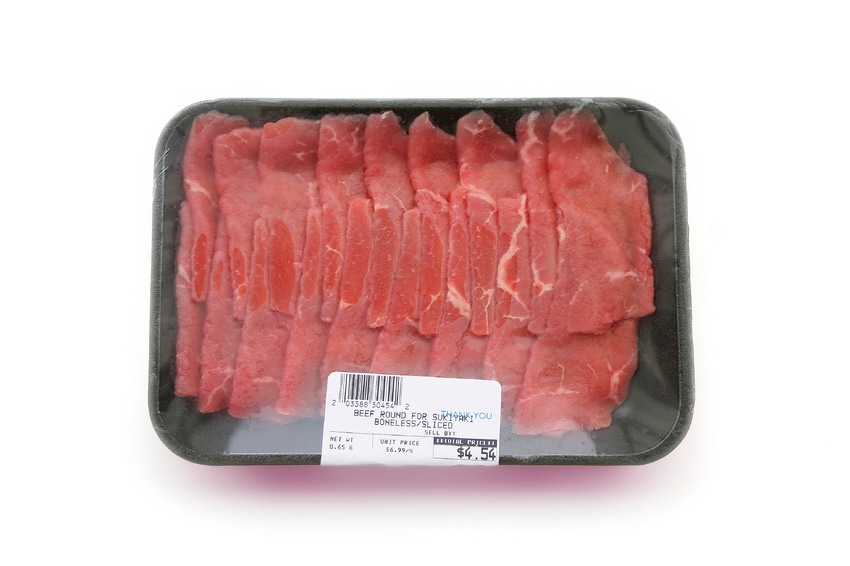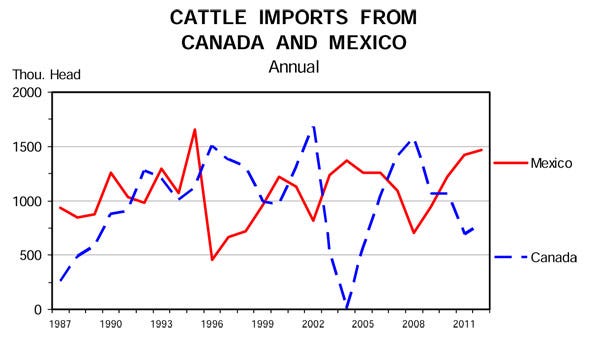MCOOL Issue Is Far From Settled
There is little that is certain at this point regarding mandatory country of origin labeling, except that there will be more protests from Canada and Mexico.
March 12, 2013

The next page in the mandatory country of origin labeling (MCOOL) saga was turned March 8 when USDA’s Agricultural Marketing Service released a proposed rule to address the World Trade Organization (WTO) finding that the MCOOL program violates trade rules.There is little about this situation that is certain except this: The proposed changes are NOT what Canada and Mexico had in mind when they challenged the MCOOL program. In fact, the changes may be about the farthest thing from what Canada and Mexico expected and there will be more protests before the issue is settled.
MCOOL was first established as part of the 2002 farm bill. It was an 11th hour addition inserted into the final bill during Senate-House conference negotiations. Most suspect it was a consolation prize for a few Upper Midwest senators who weren’t able to get a ban on packer ownership of livestock inserted into the bill.
MCOOL went through several iterations of rulemaking and legislative fixes before a final rule took effect in 2009. That rule had a few of interesting facets, the most notable being that the labels “Product of the United States and ‘Country X’” and “Product of ‘Country X’ and the United States” could be used for product that came from animals that had spent a portion of their lives in Canada or Mexico.
The first label could be used for product from animals fed in the U.S., and the second for product from animals imported directly to slaughter. Only product from animals born, raised and slaughtered in the U.S. could carry a “Product of the Unites States” label.
Another Perspective: Survey Shows Most Consumers Don’t Care About COOL
Canada and Mexico filed a formal complaint with the WTO. A review panel agreed with the complainants. The U.S. lost its appeal of that ruling but the Appellate Body decree included some interesting conclusions.

First, it said that our MCOOL measure, in fact does treat imported animals differently that domestic animals, changes competitive conditions to the detriment of imported animals, and is inconsistent with trade agreements because it affords less favorable treatment to imported livestock. But the ruling also held that the objective of MCOOL is to provide information to consumers and that that is, in fact, a legitimate objective. It further states that WTO could not: a) conclude that MCOOL does not fulfill its objective, and b) conclude that MCOOL is more restrictive than necessary to meet its objective. WTO gave the U.S until May 23 to change the program to address these issues.
Like what you are reading? Subscribe to Cow-Calf Weekly for industry news in your inbox every Friday.
And that brings us to Friday’s proposed MCOOL rule, which scraps the multi-origin labels and requires all muscle meat products to carry a label that specifies where each production step – birth, raising and slaughtering – occurs. No comingling of muscle meat products will be allowed, which means that product from all Canada- and Mexico-sourced animals will have to be completely segregated and labeled. This is exactly what MCOOL supporters have wanted since the beginning. Curiously, USDA let stand the rule that allows ground meat to be commingled and carry a multi-country label.
If “the show isn’t over until the fat lady sings,” then it appears she isn’t even humming yet on this topic. Look for further appeals by Canada and Mexico and more negotiations, perhaps as part of the Trans-Pacific Partnership talks.
Editor’s note: The North American Meat Association (NAMA) says its review of the proposed rule to modify the labeling provisions for MCOOL indicates the measure will “exacerbate the costs of an already costly program” and “will place particular onus on independent packers whose success is predicated on the ability to comingle animals of various origins in order to run their plants at capacity.”
NAMA adds that small to medium-sized packers will be negatively and disproportionately affected, while the proposal “doesn’t appease the very reason for its existence, those very real WTO concerns brought by Canada and Mexico in 2012.”
Read the proposed rule. Comments must be received by April 11, 2013.
You might also like:
Ram Truck Super Bowl Ad Shares The Heart Of Ag
You May Also Like


.png?width=300&auto=webp&quality=80&disable=upscale)
